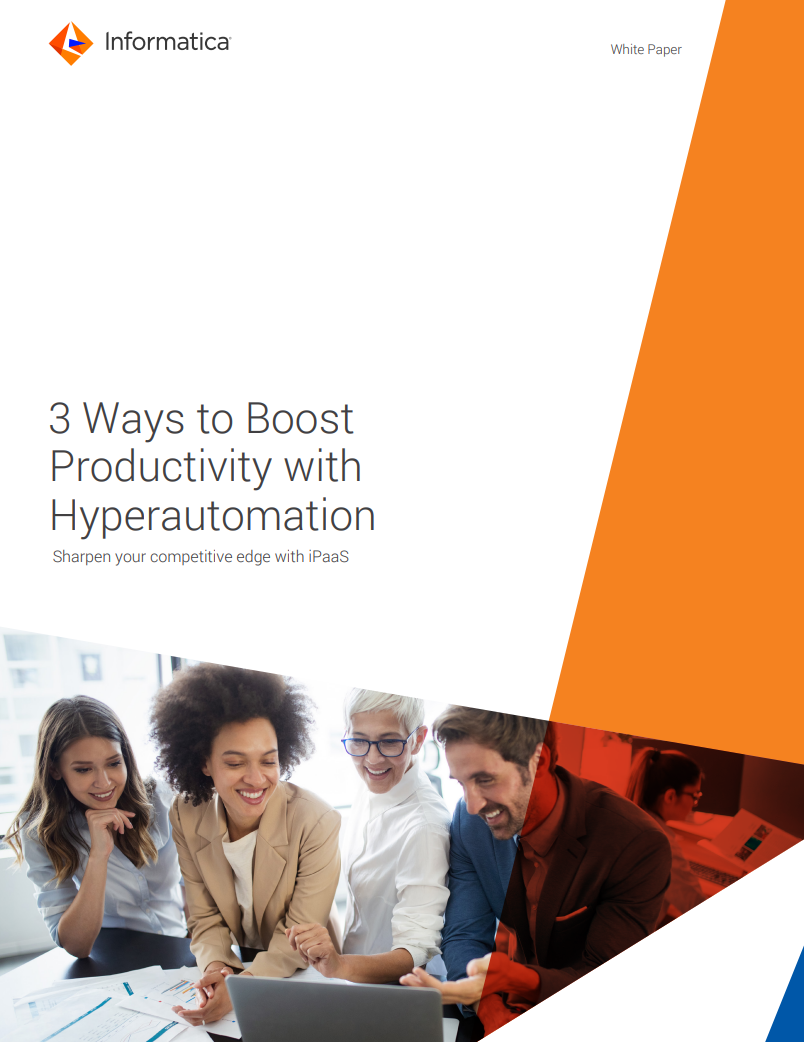Businesses need these 'three core traits' if they hope to make automation a success
Forrester claims automation can allow companies to grow 2.7 times faster than their peers, but only a minority of modern businesses meet the criteria


Sign up today and you will receive a free copy of our Future Focus 2025 report - the leading guidance on AI, cybersecurity and other IT challenges as per 700+ senior executives
You are now subscribed
Your newsletter sign-up was successful
A senior industry analyst has said modern businesses need to embrace automation to capitalise on the next big business growth opportunity in the coming years.
Businesses are facing the next epoch of growth opportunities and are currently at the bottom of the epoch’s S-curve, said Leslie Joseph, principal analyst at Forrester. The way to capitalise on the accelerated growth opportunities is to embrace automation before industry peers, he added.
RELATED RESOURCE

Three ways to boost productivity with hyper-automation
Sharpen your competitive edge with iPaaS
Speaking at UiPath’s Forward 5 conference, Joseph likened modern businesses to penguins - they are all currently so similar in terms of digital maturity and the only way to stand out over the next few years is to embrace automation.
Companies are currently spending large amounts on digital technology, but improvements are stagnating, largely because every company is spending the same money on the same once-disruptive tools.
This means growth opportunities aren’t as plentiful as they once were, now that more companies are progressing through digital transformation journeys, representing the top of the previous epoch’s S-curve.
Deploying automation platforms and related technologies, like robotic process automation (RPA), will allow businesses to achieve what Forrester calls the ‘Future Fit’ characteristics required to leapfrog competitors and join the next S-curve of growth opportunities before competitors. The three Future Fit characteristics are adaptiveness, creativity, and resiliency.
Businesses must be capable of reconfiguring core business concepts flexibly for success, according to Joseph, as well as be able to engage with the emotion of every customer, and do so through their employees, and build an ‘enterprise muscle’ to be able to identify and manage risks on an ongoing basis.
Sign up today and you will receive a free copy of our Future Focus 2025 report - the leading guidance on AI, cybersecurity and other IT challenges as per 700+ senior executives
According to Forrester’s research, Future Fit companies grow 2.7 times faster than their industry peers, but only a minority of modern businesses meet these criteria.
“Automation is the new fabric for digital business,” said Joseph - meaning that automation is the tool that businesses should be harnessing to meet all three of the Future Fit characteristics and set up for a path to accelerated growth.
“We're not even talking about the goalpost shifting a little bit here, we are talking about an entirely new stratification of value between the haves and the have nots,” he added. “It's a whole new world. It's not enough anymore to just be digitally mature, they have to be these three things.”
A business’ automation journey will only succeed when a number of key requirements are met, according to Joseph.
The company’s chief executives must be involved when developing automation goals and outcomes. Additionally, the value of each automation needs to be captured from a holistic perspective, like an automation platform allows a business to do, ensuring the function of each automation is aligned with the goals set in conjunction with the CEO.
“Automation is a transformational initiative across your organisation, it must be supported by your CEO,” he said. “Your CFO must set and align automation-centric outcomes that must be distributed across your business functions, so that everybody in the company is invested and is tasked with creating an atmosphere of resilience to automation.”
Transforming employees’ attitudes towards automation will also be important, and specifically reassuring staff that their jobs will remain safe, since they are most at risk from the uptake of automation.
“You need to engender trust, you need to create pathways for skills for your employees so that they can continuously see value for themselves on the automation programme,” said Joseph.
Companies also need to consider hiring their first chief automation officer to maximise stewardship over what would be a programme that transforms the company.

Connor Jones has been at the forefront of global cyber security news coverage for the past few years, breaking developments on major stories such as LockBit’s ransomware attack on Royal Mail International, and many others. He has also made sporadic appearances on the ITPro Podcast discussing topics from home desk setups all the way to hacking systems using prosthetic limbs. He has a master’s degree in Magazine Journalism from the University of Sheffield, and has previously written for the likes of Red Bull Esports and UNILAD tech during his career that started in 2015.
-
 Salesforce targets telco gains with new agentic AI tools
Salesforce targets telco gains with new agentic AI toolsNews Telecoms operators can draw on an array of pre-built agents to automate and streamline tasks
-
 Four national compute resources launched for cutting-edge science and research
Four national compute resources launched for cutting-edge science and researchNews The new national compute centers will receive a total of £76 million in funding
-
 IDC: The business value of IBM Maximo
IDC: The business value of IBM MaximoWhitepaper Integral to the transformation of asset management
-
 UK firms are pouring money into AI, but they won’t see a return on investment unless they address these key issues
UK firms are pouring money into AI, but they won’t see a return on investment unless they address these key issuesNews An SAP report projects increased AI investment, but cautions that too many organizations are taking a fragmented approach
-
 Intel makes high-level hires while factory workers are warned of layoffs
Intel makes high-level hires while factory workers are warned of layoffsNews The company is appointing four senior executives as part of efforts to refocus on engineering and customer relationships
-
 UiPath names Simon Pettit as new AVP for UK and Ireland
UiPath names Simon Pettit as new AVP for UK and IrelandNews The seasoned leader will spearhead region-specific transformation projects as UiPath looks to drive operational growth and customer engagement
-
 How to empower employees to accelerate emissions reduction
How to empower employees to accelerate emissions reductionin depth With ICT accounting for as much as 3% of global carbon emissions, the same as aviation, the industry needs to increase emissions reduction
-
 Automate personalization with AWS
Automate personalization with AWSWhitepaper How marketers can automate, deliver, and analyze billions of personalized messages and offers per day
-
 Worldwide IT spending to grow 4.3% in 2023, with no significant AI impact
Worldwide IT spending to grow 4.3% in 2023, with no significant AI impactNews Spending patterns have changed as companies take an inward focus
-
 Report: Female tech workers disproportionately affected by industry layoffs
Report: Female tech workers disproportionately affected by industry layoffsNews Layoffs continue to strike companies throughout the tech industry, with data showing females in both the UK and US are bearing the brunt of them more so than males